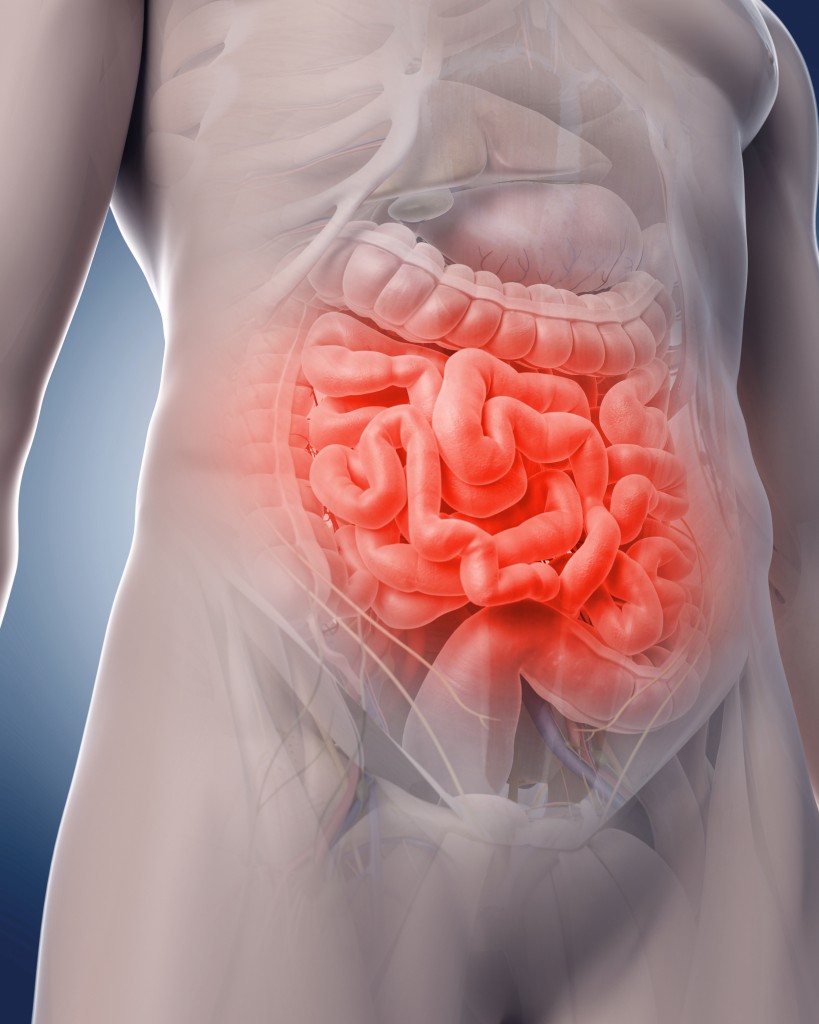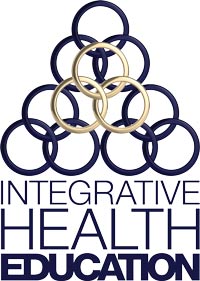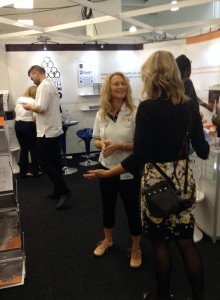Naturopath Emma Lane spoke alongside other internationally-recognised experts at the CAM Summit this summer. The one-day conference saw Emma talk about her favourite topic – parasites.
The talk, Parasites Uncovered, was written to help practitioners understand some of the detrimental physical, mental and emotional effects that some parasites can create. During the session Emma Lane presented the latest research and theories that show how these pathogens can drive the common illnesses and diseases that practitioners face in their everyday practice. Amongst a number of illnesses Emma discussed the link between parasites and IBS – a common and often misdiagnosed problem.

Undiagnosed problem
Parasites are insidious because generally people are not aware of them and there is a misconception amongst doctors and the general public alike that parasites occur only in third world countries.
Additionally often doctors do not suspect and therefore do not recognise the symptoms of parasites. Inadequate testing procedures can often result in either an incorrect diagnosis or the infestation going undiagnosed.
The pathogenesis of parasites
Many parasites have the capacity to cause disease and may affect their hosts in various ways. These include:
• Altered metabolism
• Physiology
• Anatomy
• Reproductive success
• Behavioural changes
The pathology of a parasite infection can run the gamut from very mild to lethal. Frequently, the same immune mechanisms that are intended to protect us cause the symptoms observed during a parasitic infection. Pathology from the parasitic infection can be categorised as one of several general types:
o Interference with host nutrient acquisition
o Parasite-induced trauma to cells, tissues and organs
o Changes in host cell growth patterns
o Effects on host behaviour
o The host immune response to infection
And of course, many parasites induce pathology in more than one way.
Wellbeing factors
Many contributing factors affect the chances of picking up a parasite and also impact on the effects it can take on the body. These include:
o Poor or low wellbeing
o Poor lifestyle choices
o Inadequate or excessive poor nutrition
o Poor digestion
o Chronic stress
o Immune insufficiency
o International travel
o Medication use
o Influx of immigrants from endemic areas / armed force personnel
o Poor farming practices
o Poor personal hygiene
o Contamination of municipal water
o Poor vitality and health of pets
o Sex
Parasites and IBS
In 2013 the British Journal of Medical Practitioners showed that the prevalence of IBS is estimated in the UK to be 17% overall, with a prevalence of 11% among men and 23% among women.
It also showed that 33 to 90% of patients do not consult a physician and that a large proportion of patients who meet the IBS criteria are not diagnosed with IBS.
IBS is characterised by chronic abdominal pain, discomfort, bloating, and alteration of bowel habits in the absence of any known organic cause.
The question is, is it IBS or parasites?
Parasites or IBS?
Research suggests that parasitic organisms act as etiologic agents of gut inflammation and dysfunction. One study found blastocystis hominis to be present four times more frequently in IBS patients compared with control subjects. In addition, 80% of patients’ IBS symptoms were resolved when B. hominis was treated.
Other parasites identified by stool analysis that have been isolated from patients with clinical symptomology include Dientamoeba fragilis, Entamoeba spp, Endolimax nana, and Giardia lamblia.
Blastocystis Hominis
o Over 50% of IBS patients have B.hominis (ref 1, 2)
o B.hominis is the most prevalent parasite found in IBS-related studies (ref 3, 4, 5)
o The symptoms of B.hominis, D.fragilis and IBS are identical (ref 6)
o Both B.hominis and D.fragilis, or either parasite are found in up to 30% of people suffering from irritable bowel (ref 7, 8)
o D.fragilis is known to cause IBS-like symptoms (ref 9)
Many people infected with Blastocystis Hominis have no symptoms at all. The organism can be found in both well and sick people. (ref 10) Where symptoms are present they include:
o Abdominal pain
o Diarrhoea
o Constipation
o Gas
o Upset stomach or nausea
o Patients also report dizziness and fatigue, skin rashes, and joint pain, vomiting, fever, sleeplessness
When Blastocystis Hominis exists with other pathogens, it has been implicated in severe chronic conditions e.g. IBS, chronic fatigue and different forms of arthritis. (ref 11, 12, 13, 8)
Research on the clinical significance of Blastocystis hominis that appeared in the Journal of Clinical Microbiology examined 19,252 stool specimens from 12,136 patients. (ref 5)
A total of 3,070 intestinal parasites were seen in 2,889 patients. Blastocystis hominis was found in faecal material from 647 patients.
o A total of 132 cases were observed to be in association with other enteric pathogens
o 239 patients had symptoms, the most common being abdominal pain (87.9%), constipation (32.2%), diarrhoea (23.4%), alternating diarrhoea and constipation (14.5%), vomiting (12.5%), and fatigue (10.5%).
There have been several other studies which have shown the high number of Blastocystis-positive individuals in the IBS group compared to the control group with rates of 76%, 71%, and 49% with less than 20% in the control groups. (ref 3)
Gut Pathogens
Blastocystis and/or Dientamoeba are found in up to 30% of people suffering from irritable bowel. (ref 7, 8)
D. fragilis is known to cause IBS-like symptoms and has the propensity to cause chronic infections, but its diagnosis relies on microscopy of stained smears, which many laboratories do not perform, thereby leading to the misdiagnosis of Dientamoebiasis as IBS. (ref 9) Parasite Testing Inc. does carry out microscopy of stained smears an dis able to correctly diagnose D. fragilis.
I believe if Blastocystis and D.fragilis were correctly diagnosed around 50% of the IBS market would disappear.
Conclusions
Being mindful of symptoms that can relate to a parasite infection is vital to identifying what is behind a person’s health challenges. Awareness of parasites and common symptoms is the first step, but there are many common symptoms that can be misinterpreted.
Testing with a reliable and specialist laboratory to confirm or rule out parasites as a causative factor is essential.
The Parasitology Centre Inc. (PCI) is the most renowned and respected parasitology lab in the world.
PCI performs one of the most accurate, comprehensive stool analyses available and detects other non-parasitic structures that represent bio-indicators to physiological or pathological conditions.
Without testing, you are likely to miss vital pieces of information that can be contributing to the patients’ health and wellbeing challenges. Health practitioners can access these clinical tests via Parasite Testing Europe.
Don’t miss the chance to study with Emma Lane this year…only UK date and one USA date in 2016.
The World of Fungus, Parasites and Bacteria Level 1.
8th & 9th October – California
12th & 13th November – London
Study the many signs, symptoms and effects of common parasites and fungus. Learn Emma Lane’s unique approaches to effectively eradicating parasite and fungal infections, when and how to test and how to interpret the PCI Inc. test results.
The two-day course will explore how parasites and fungus can wreak havoc in the human body.
• Recognise parasite signs and symptoms, growth cycles, how they are contracted and eradication options;
• Learn how to deal with parasitic and fungal pathogenic infections and imbalances;
• Learn how to restore wellbeing when parasite infections are diagnosed.
“Highly recommended for anyone in the health industry who’s serious about coaching his or her clients to health and wellness. You won’t be disappointed!” C.B.
BANT – 15 hours CPD.
BOOK NOW.
References
1 Yakoob J, Jafri W, Jafri N, et al. Irritable bowel syndrome: in search of an etiology: role of Blastocystis hominis. Am J Trop Med Hyg. 2004 Apr;70(4):383-5. PMID: 15100450 [PubMed – indexed for MEDLINE]
2 Yakoob J, Jafri W, Jafri N, Islam M, and Asim Beg M. In vitro susceptibility of Blastocystis hominis isolated from patients with irritable bowel syndrome. Br J Biomed Sci. 2004;61(2):75-7. PMID: 15250669
BJMP 2013;6(1):a608
3 Roberts et al. Update on the pathogenic potential and treatment options for Blastocystis sp. Gut Pathog. 2014; 6:7
4 Baron S. Medical Microbiology 4th Edition. University of Texas Medical Branch. Galveston. ISBN: 0-9631172-1-1. 1996.
5 Qadri SM, al-Okaili GA, and al-Dayel F. Clinical significance of Blastocystis hominis. J Clin Microbiol. 1989 Nov;27(11):2407-9.
6 Windsor JJ. B. hominis and D. fragilis: Neglected human protozoa. The Biomedical Scientist. July 2007:524–527.
7 Yakoob J, Jafri W, Beg MA, et al. Blastocystis hominis and Dientamoeba fragilis in patients fulfilling irritable bowel syndrome criteria. Parasitol Res. 2010 Aug;107(3):679-84. doi: 10.1007/s00436-010-1918-7. Epub 2010 Jun 8.
8 Yakoob J, Jafri W, Jafri N, Islam M, and Asim Beg M. In vitro susceptibility of Blastocystis hominis isolated from patients with irritable bowel syndrome. Br J Biomed Sci. 2004;61(2):75-7. PMID: 15250669
9 Stark D, van Hal S, Marriott D, Ellis J, Harkness J. Irritable bowel syndrome: a review on the role of intestinal protozoa and the importance of their detection and diagnosis. Int J Parasitol. 2007 Jan;37(1):11-20. Epub 2006 Oct 12.
10 Grossman I, Weiss LM, Simon D, Tanowitz HB, Wittner M. Blastocystis hominis in hospital employees. Am J. Gastroenterology 1992 June;87(6):729-32.
11 Charles H. Zierdt. Blastocystis hominis – Past and Future. Clinical Micro. Reviews. Jan 1991, p. 61-79.
12 Stenzel DJ and Boreham PF. Blastocystis hominis revisited. Clinical Micro. Reviews. Oct. 1996, Vol. 9, No. 4. p. 563–584
13 Lee, et al., Trends in Intestinal Parasitology Part II – Commonly Reported Parasites and Therapeutics. Practical Gastroenterology Vol XV1 No 10.




